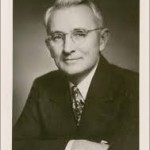
Frank Bettger took this advice to heart. He was motivated to inject real enthusiasm in his talks and eventually went on to become one of the most successful sales agents in his industry. Many years later, he wrote:
During my thirty two years of selling, I have seen enthusiasm double and treble the income of dozens of salesmen, and I have seen the lack of it causing hundreds of salespeople to fail.
Make the other person feel important
One of the fundamental Carnegie principles is that you can win friends and gain more influence by packing away your own ego and focus on making the other person feel important. Carnegie maintained that the desire to feel important, to feel significant is a strong compulsion for human beings.
It was this quest that made a poor, uneducated grocery clerk pick up a few law books from some abandoned household goods to see how these could be used to make something of himself. “You have probably heard about this man” Carnegie said. “His name was Abraham Lincoln.”
Carnegie recommended some simple ways to make the other person feel important:
-Be genuinely interested in other people
-Smile at and acknowledge the person
-Remember a person’s name is to him/her the most important sound
-Encourage others to talk about themselves and listen well
-Make the other person feel important but don’t fake it